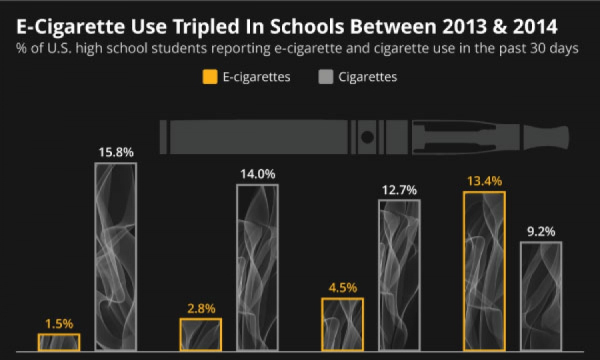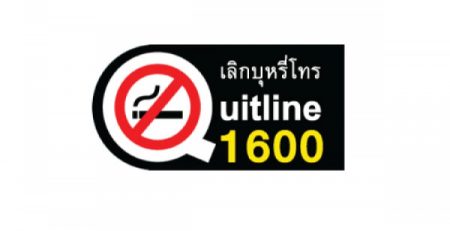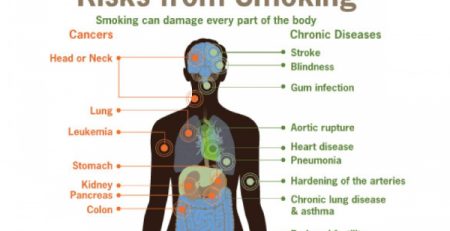The Dialogue on Tobacco Control in Schools
Date: Monday, July 13 , 2011, Time: 09:00-12:00 Venue: The 6th Floor, Kamolmas Room, Siam City Hotel, Bangkok, Si Ayuthaya Road, Phayathai, Bangkok, 10400 Motion 1: Press release on tobacco control in schools
Mrs. Urairat Sangboonnum, the Deputy Permanent Secretary for Education, said that the Ministry of Education is currently collaborating in tobacco control efforts in schools to follow the Notification of the Ministry of Public Health and Tobacco Product Control Act B.E. 2535 (1992). School executives together with teachers, parents and communities help each other to set regulations for smoke free schools and also cover smoking-related diseases in the school curriculum. Monitoring the use of addictive drugs in schools will be performed twice a year in order to set smoking prevention, monitor and build awareness including providing smoking cessation services. This will provide knowledge along with controls and punishment that for those students who smoke while wearing a student uniform.
Dr. Siriwan Pitayarangsarit, the Tobacco Research Control and Knowledge Management Center (TRC), said that the information from the Non – Communicable Disease Surveillance on Risk Behavior Data Center, Department of Disease Control, Ministry of Public Health 2009 survey of 7,649 adolescent smokers aged 13-15 in Thailand showed that 15.6% of those adolescents smoked both smoke and used smokeless tobacco, and 45.7% were exposed to secondhand smokeboth inside and outside the home. Alarmingly, 28.9% of those adolescents believed that smoking could help them gain more friends and 8.3% thought that smoking would make them attractive. However, 75.5% of those adolescents wanted to quit smoking. For this reason, it was necessary to provide knowledge, help adolescents to quit smoking and prevent them from becoming initial smokers. So the 3rd National Health Assembly Conference has included a consultation on tobacco control in schools on the conference agenda and also the Ministry of Education has included tobacco-related diseases in the curriculum and also prohibiting smoking in both public and private schools. Those are alternative practices society can use for change in order to reduce initial smokers.
Besides, Dr. Siriwan Pitayarangsarit has passed a message from Dr. Hathai Chitanont, the president of Thailand Health Promote Institute (THPI) to the meeting which are as follows: there are 3 important methods to prevent the adolescent from being initial smokers which are: (1) Provide knowledge by establishing programs in schools in order to provide knowledge about tobacco and health along with issuing campaigns via mass media, (2) Reduce provocative factors such as by creating good models, reduce the tobacco marketing strategies, prevent availability of some types of cigarette products (tasty cigarettes, sweet cigarettes and menthol cigarettes), and (3) Reduce the adolescents access to cigarettes such as through cigarette retail shops, selling cigarettes via internet or automatic machines and increase more cigarette taxes. If those methods are driven forward at the same time, the number of initial smokers would certainly drop.
Dr. Rasamee Sangthong, Faculty of Medicine, Prince of Songkla University, said that learning to understand about the cigarette dangers is very important. So ThaiHealth, TRC together with the National Science and Technology Development Agency (NSTDA) have issued the book titled, Tobacco Maya, aiming to provide knowledge to the general public and adolescents to understand the dangers of all cigarette smoking. This book is described as a simple message which is easy to understand. This book also focuses on the views of fathers, mothers, teachers and adults that can provide advice to their children, which this is an effective method for preventing initial smoking. To provide knowledge about cigarette smoking is an important mechanism to prevent adolescents from being initial smokers.
Motion 2: Academic Seminar on Tobacco Control in Schools
1. Presentation of a proposal, The cigarette smoking situation of students studying in schools under the Office of the Basic Education Commissionby Assoc. Prof. Dr. Surin Klumpakorn. The conclusion of this study is below:
The purpose of this study:
- To study the cigarette smoking situation of students studying in schools under the Office of the Basic Education Commission
- The results of this study (the information on type of addictive drugs among those using them)
- Cigarettes and alcohol are most commonly used addictive products consumed by people.
- The male is the most relevant for cigarette while the female is the most relevant for alcohol.
- Cigarette smoking is the most popular compared to other addictive products used in all educational levels and all areas.
- The smokers participating in cigarette cessation are those students studying at the high school level.
- Most cigarette cessation units are located in the middle and Eastern regions of Thailand.
- The study results on smoking rates:
- The smoking rate of males is higher than the female smoking rate (1.6 and 0.04)
- Most student smokers are boys studying at the high school level with percentages of those smoking at 4.48%, but only 0.1% for girls.
Suggestion:
The system development of data collecting for using drugs in schools should be established systematically, accurately and consistently.
The development of data collecting mechanisms should be accurate and cover more areas. There should be more in-depth studies of causes leading to cigarette smoking or other addictive substance use that focuses on students studying in schools under the Office of the Basic Education Commission. This will be useful in preventing access to tobacco use/drugs and help students to quit cigarette smoking/drugs.
2. Presentation of a progress report of The school executive roles and tobacco consumption control methods in private Islamic schools in the South of Thailandby Ajarn Subanyo Jeenanarong. The conclusion of this project is described below:
- To study the roles of school executives on tobacco consumption control in private Islamic schools.
- To study the tobacco consumption control management in private Islamic schools
- To study capability, problems and obstacles of tobacco consumption control performance in private Islamic schools
- To study the development of the role of school executives of private Islamic schools along with tobacco consumption control management
- The expected results
- To know about capability, problems and obstacles of school executives in private Islamic schools in school management along with tobacco consumption control management of Southern students
- To know the direction for development of school executives in private Islamic schools in school management along with tobacco consumption control management of Southern students, including the direct responsibility of organizations such as
- TRC, RDH and ThaiHealth,etc.
Data Collection in 4 Southern provinces:
- Pattani: 7 school executives/ 3 target schools/2 successful schools
- Yala: 7 school executives/ 3 target schools/1 successful school
- Narathiwat: 7 school executives/ 3 target schools/1 successful school
- Songkhla: 7 school executives/ 3 target schools/2 successful schools
- Provinces and 12 target schools
- 6 of 12 schools are successful in tobacco control in schools.
- The other 6 target schools have left the project.
The overall conclusion of the progress research project:
The roles of school executive of the private Islamic schools on tobacco consumption control methods.
- Set the system for helping to quit smoking, monitoring, controlling and preventing through various activities
- Provide knowledge, build awareness by using religious regulation in class rooms and practical methods such as religious punishment and showing cigarette dangers to health
- Set the rules and disciplinary punishment
4. Set smoke free zones
- Collaborate with community and parents to monitor students who smoke outside schools
- Set reconnaissance units for home visiting
- Request collaboration from Village Headman, Sub – district Headman and Sub – district Administrative Organization
- School staff must be good models for non smoking
There is a lot of cigarette smuggling and smuggled cigarettes are commonly sold There are public relations for tobacco control in school such as broadcasting via school radio, no – smoking stickers. However, there is not a signboard of a Smoke free school which the government section has not produced. Past performance has been completed according to the schedule and others are expected to be accomplished in the future as well.
Motion 3: Knowledge exchange, the conclusion of tobacco control in schools from the meeting is described below:
Ajarn Waraporn Hongdisakul, Non – Smoking Campaign Teacher Network, said that there are 4 interesting items which are: (1) The school executive smoking rate is higher than the school teacher smoking rate. Alarmingly, it could be difficicult to establish smoke free schools if school executives are smokers, and to reduce the number of school executive smokers, (2) Considering the smoking rate of the Northeast and South of Thailand, the rate and number is at a high level for both regions. However, when considering the smoking rate as a percentage, smoking remains in the middle level. The regions that have high percentages of smoking are in the Western and the Middle regions of Thailand. So the non smoking campaign needs to expand its network to cover those two regions because there are high rates of smoking in those regions. Notice that there is a high rate of smoking marijuana in the North compared to cigarette smoking. (3) Knowledge of tobacco company tactics is only 50%, and it is the responsibility of the Non – Smoking Campaign Teacher Network to carry on in providing knowledge to all schools. However, we have done well with tobacco control policy, and (4) there are many student smokers who want to quit smoking, but there are not enough cessation services to help them to quit.
Assoc. Prof. Dr. Surin Klumpakorn, an academic staff of the Faculty of Public Health, Mahidol University said that the calculation of smoking rate for the Northeast and the South of Thailand used the population as base for calculating, and divided by the number of students smoking in those regions. If we consider only the number, the Northeast of Thailand has the highest smoking rate because the population in this region is more than in any other region. Assoc. Prof. Dr. Surin Klumpakorn agrees that there is only 20% coverage of cigarette cessation services while 80% of student smokers want to quit smoking. For this reason, all systems of cigarette cessation services, not only in schools, need revision. Currently, the Non – Smoking Campaign Teacher Network is working on cigarette cessation starting from the primary care system through community hospitals. Moreover, more attempts to establish cigarette cessation services in local areas are in process and there is also more provision of cigarette cessation training for teachers and nurses. The conclusion is that more must continue to provide more work processes for cigarette cessation services in schools.
Ajarn SubanyoJenanarong, an academic staff of the Faculty of Liberal Arts and Social Science, Yala Islamic University said that the truth is in the policy content. From the percentages, it is clear there is a need to find methods suitable tosort out the problems.
Ajarn Ravewan Warangkul, an academic of the Office of the Permanent Secretary of the Ministry of Education, asked whether TRC is interested in vocational schools. There are 125 vocational schools in Thailand and students studying in those vocational schools are 15 – 18 and 19 – 22 years old. The Office of the permanent Secretary of Ministry of Education has the information of those vocational students and it can be used as data for TRC.
Ajarn Suparat Tuntiwetchapong, the president of the Non-Smoking Campaign Teacher Network said that the tobacco legislation indicates that every school must be a 100% smoke free school. It is hard to sort out the problem of teacherscomplaints that school executives are smokers. It would be a good idea if the Non- Smoking Campaign Teacher Network expands its network to Pattani province.
Ajarn SubanyoJenanarong, an academic staff of the Faculty of Liberal Arts and Social Science, Yala Islamic University said that it would be possible to expand the Non-Smoking Campaign Teacher Networks network to Pattani because people understand the purpose of doing that. Ajarn SubanyoJenanarong is willing to be a focal person in collaborating with the Non-Smoking Campaign Teacher Network. The data collection for the South of Thailand shows that most school executives are not smokers, so it should not be a problem for work performance in this region.
Ajarn Anong Poltrakul, the Deputy Director of the Non-Smoking Campaign Teacher Networks network, said that she would like to use this opportunity for collaboration as the Non – Smoking Campaign Teacher Networks network will travel to Songkla province tomorrow and will participate with many smoke free schools in that province. With this opportunity, the Non-Smoking Campaign Teacher Networks network would like to invite Ajarn SubanyoJenanarong (if available) to exchange knowledge at Hat Yai Ratprachasung school as the Non – Smoking Campaign Teacher Networks network would like to expand its network to the 3 Southern provinces.
Assoc. Prof. Dr. Naowarat Charoenca, an academic staff of the Faculty of Public Health, Mahidol University said that she appreciated that all departments are working fully on tobacco control but also worries that adolescents dont know about the tactics of the tobacco companies. The interesting fact is that 75% of those smokers want to quit smoking. For this reason, this information should help to stimulate relevant departments to pay more attend to this matter.
Dr. RassameeSungthong, an academic of the Faculty of Medicine Prince of Songkla University, said that she would like to give will power to those student smokers powerfully willing to quit.. Those student smokers really need will power to quit smoking since they are at beginning smoking level.
Ajarn Subanyojenanarong, an academic staff of the Faculty of Liberal Arts and Social Science, Yala Islamic University suggested providing awards to schools for being smoke free school models as good organizations, good educational models and being mainstream in society.
Assoc. Prof. Dr. Jintana Sarayuthpitak, an academic staff of Faculty of Education, Chulalongkorn University, said that if Ajarn Subanyojenanarongs research is ready, he would like to ask TRC to gain more knowledge by synthesizing methods and activities from this research in the future. .
Prof. Dr. Sunida Preechawong, an academic staff of the Faculty of Nursing, Chulalongkorn University, said that Ajarn Itsara, Chulalongkorn University, has produced the tobacco control media campaign in the Yavee language. Prof. Dr. Sunida Preechawong also has a file of media information in the Yavee language. Ajarn Subanyojenanarong is welcome to use this information for future campaigns.
Dr. Siriwan Pitayarangsarit, the Tobacco Research Control and Knowledge Management Center (TRC), said that TRCs duty is to cooperate with all departments working on tobacco control to work together, and this way provides connections through several issues that can be adopted for work performance. For TRC, we provide support such as information on missing background models; research projects can be proposed for developing background models. After having background models, Action on Smoking and Health Foundation Thailand can produce media following the background models and also collaborate with other departments for working effectively on implementation. Moreover, collaboration with Thai Health Promotion Foundation (ThaiHealth) in producing advertisements on television and radio for tobacco control campaigns for the adolescent group on the effects of cigarette smoking can illustrate that smoking reduces a smokers ability to run200 meters as compared to a non – smoker. The TRCs intention is to help local people in all regions and provinces to find out about the tobacco problem in their areas because they can better understand those problems than others. Finally, Dr. Siriwan thanked all participants for attending the meeting.
Meeting Minutes by: Khun Harris Taweepatana
Proof Reading of the Meeting Minutes by: Dr. Siriwan Pitayarangsarit











